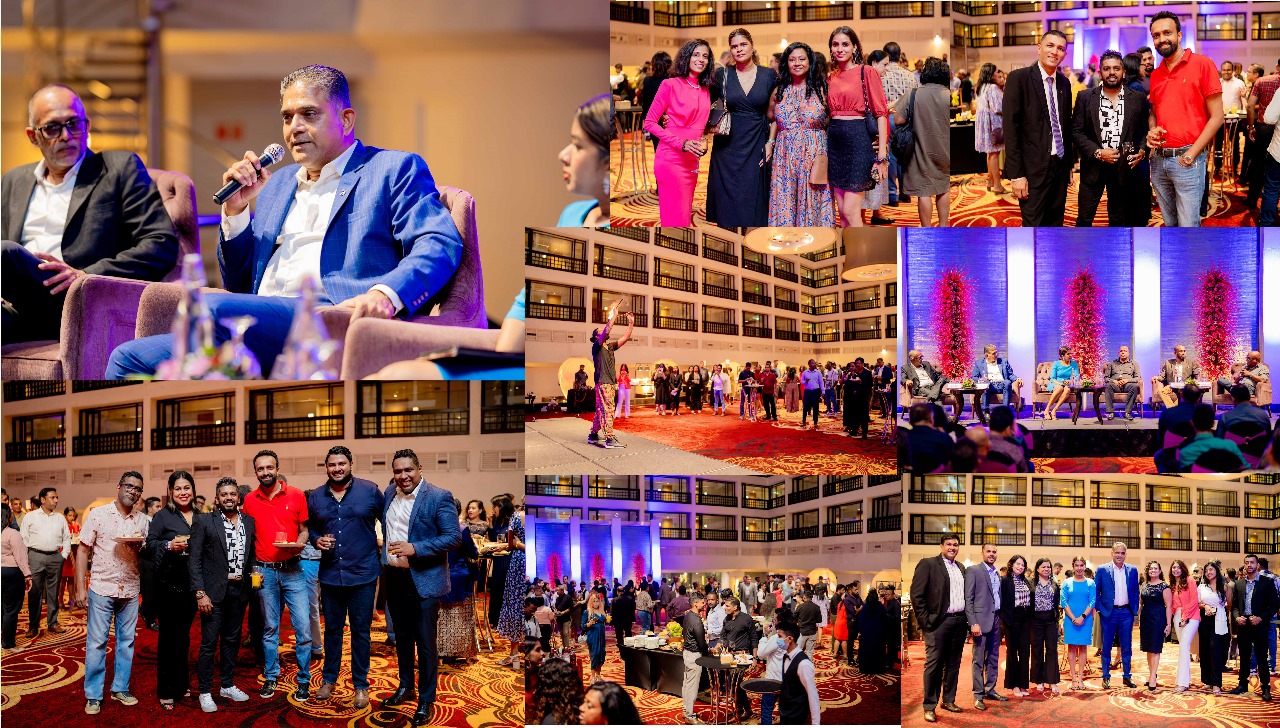Nilmini Guneratne – Vice President – Marketing & Sustainability at DFCC Bank
The name ‘Nilmini Gunaratne’ is one that is well-known in the Banking industry of Sri Lanka. With decades worth of experience, knowledge and accolades to her name, Nilmini describes one of the major challenges she has overcome on her way up to her current position as the Vice President – Marketing & Sustainability at DFCC Bank, and a high-ranking female marketing professional in the Banking industry.
Speaking of the reason behind her choice of industry, Nilmini explained that the principles in marketing are not subject to change based on the industry. Rather that marketing is about adopting the right strategies to the given industry. “Having worked in the service sector before, I felt that the sector somehow opens greater opportunities for one to interact very closely with the end consumer, which to me is a remarkable aspect. Working in the Banking industry offers onea variety of opportunities, as well as the possibility of early responsibility and rapid career progression. It’s no doubt a challenging profession that looks to its talented workforce to help boost the economy and restore public faith in the industry. Having worked for over a decade in the banking sector, the challenges come in various shapes and sizes. Sri Lanka being an overbanked nation, and consumers being spoilt for choice makes the marketing challenge a more complex one. I have enjoyed the challenge tremendously so far, and hope that Ican continue to contribute to the development of the industry as a whole with my experience and expertise.”
On the topic of role models, the Vice President revealed, “I have not looked up to anyone or followed any person, male or female, as a role model. But I am acutely aware of the qualities that are required in an individual in orderto move forward in his/her career, and Ihave identified my own strengths and weaknesses accordingly. My role model is me, and my abilities are what have influenced me. All of my achievements are due to my hard work and untiring efforts. I have always wanted to excel, and I have at every juncture in my career understood exactly where I stood when it came to achieving my goals, and thought out of the box in order to move towards them.”
Addressing the matter of challenges faced by career women, Nilmini stated, “I believe the word “challenge” is common to everyone and everything in life, and one’s career is no exception. Being a woman simply adds an additional and unique complexity to the challenge. The complexity arises due to many reasons. It can arise due to very clear cut objectively identifiable issues, such as inequalities that exist in pay and remuneration in the work force, from gender based harassment and discrimination to broader issues such as societal pressures placed on women to achieve a work life balance, and excel at the multiple roles of career woman, wife and mother. Just as any woman who has taken on the challenge, I can say; I have faced nearly all of these challenges at least once in my career/ life. But I never gave up thanks to the support and encouragement that my family has always given me.”
“It means everything! Trusting in yourself and that you can make things happen, and entrusting that responsibility to ensure that the deliverables are met. Since women lead with the heart as well as the mind, the sky is the limit when it comes to achievement, especially when encouragement and motivation are provided”, replied Nilmini, when asked what women’s empowerment meant to her.
With the number of working women gradually increasing each year, Nilmini presented her recommendation of practices, which organizations should adopt in order to further empower and encourage women in the workforce. “There are many things that need to be done, but I would like to highlight one of the most pressing problems as I see it. Many talented young women are forced to leave the workforce following marriage and motherhood. The reasons often cited include, the lack of flexi work hours, quality and affordable child care, and support from family and spouses. There are many cultural barriers at play as well in this mix, and I feel Sri Lankan companies need to find creative ways to address these issues and retain their female talent. It is not a simple case of implementing measures and policies, which prevail in other countries. Solutions for women working and living in Sri Lanka have to take in to account the ground conditions and cultural factors. It is therefore, in many ways beyond the scope of organizations to address. In this context, I think providing flexi hour and home working opportunities is an easy start. Providing women who have taken a career breakwith the ability to re-join the work force at a later stage is also easy to implement. Companies have to understand the value and contribution women make to their skill pool, and make the required effort and investment to welcome them back.”
When questioned about her thoughts and her role in empowering career women, Nilmini responded, “We live in an era where female empowerment is taking center stage globally, and we are also tuning in to this conversation here in Sri Lanka. I think career women such as myself have a lot to contribute to this conversation, be it with regard to finding solutions to problems women face in the work force or simply mentoring and guiding women through various challenges. There is considerable value in hearing and learning from our own women about their challenges and how they were overcome. As a mother and a wife, I consider myself fortunate to have had the ability to pursue my career without any interruptions. Therefore, one of the areas I’m most interested in, is in finding workable ways of providing opportunities for women to keep working and progressing in their careers should they wish to.”
Discussing the legislation and regulations required in order to ensure the success of women in the workplace, Nilmini commented, “Some very important rights have been secured for women in Sri Lanka, such as paid maternity leave and other related benefits. However, it’s very clear that this is not enough. If it can be expanded to cover areas that ensure a better work-life balance for women with children and dependents, it would be able to create a real impact in improving working conditions for women. Legislation to ensure equality in pay and to minimize gender-based discrimination will incentivize women to keep working hard, and make their personal sacrifices worthwhile and their work more fulfilling.”
“I think first and foremost, women desire to be treated equally. They also wish to be understood in the context of the triple role they have to play in life, as career women, and in most cases as wives and mothers. I think they look forward to an environment that supports these needs. It is also my wish to see women challenge the commonly held misconception that in order for women to succeed in the corporate arena they need to be favored by the hierarchy .Women must primarily rely on their own talents, skills and perseverance in order to make it to the top ”, said Nilmini, expressing her views on what the future holds for working women, as well as her own hopes in this regard.


